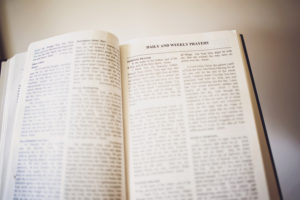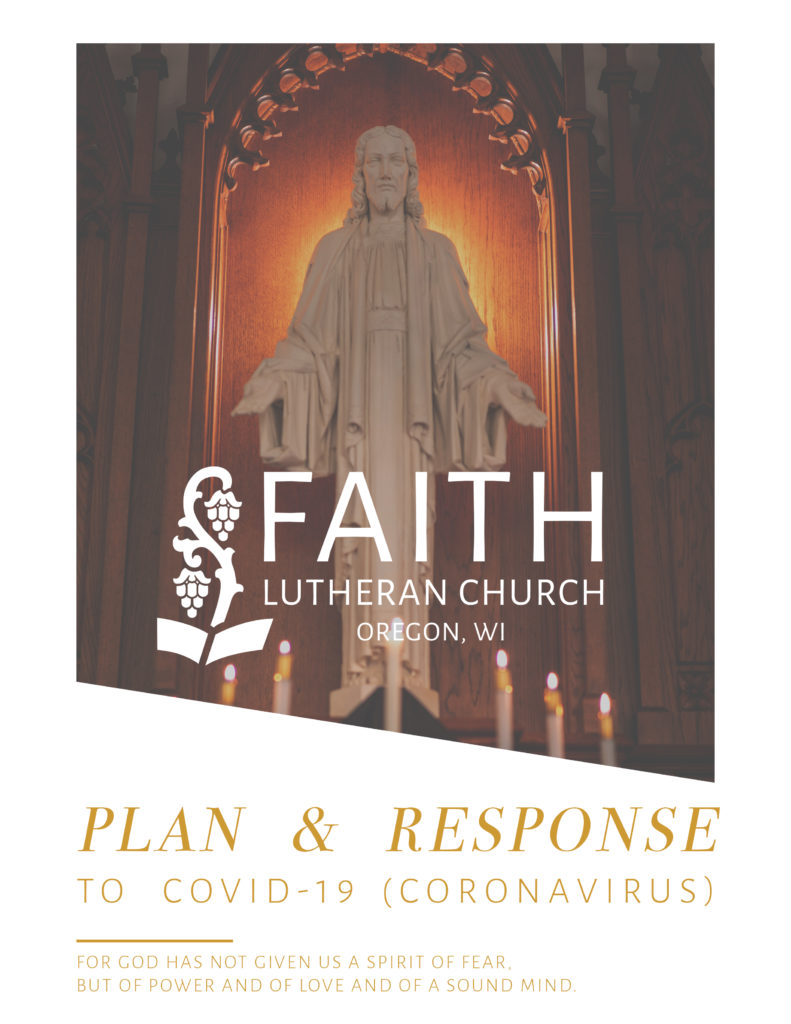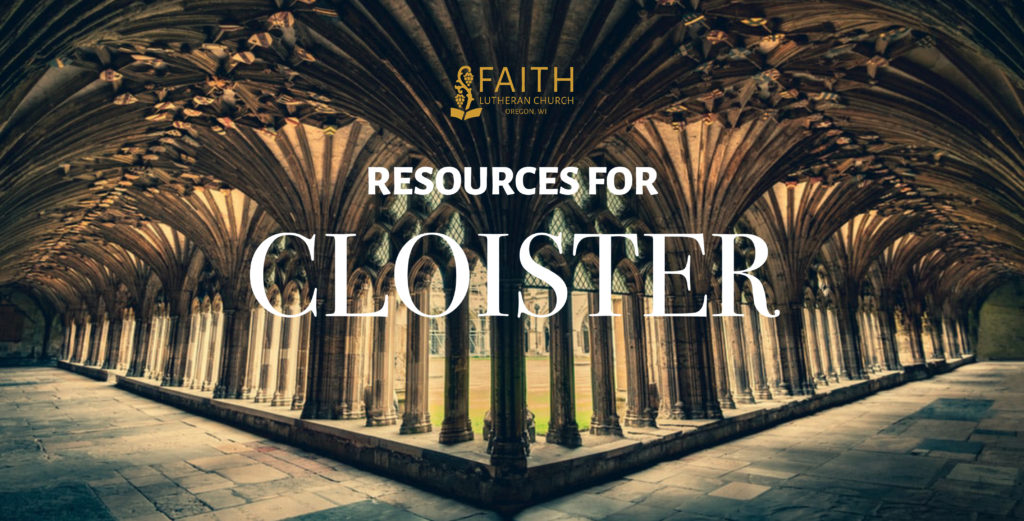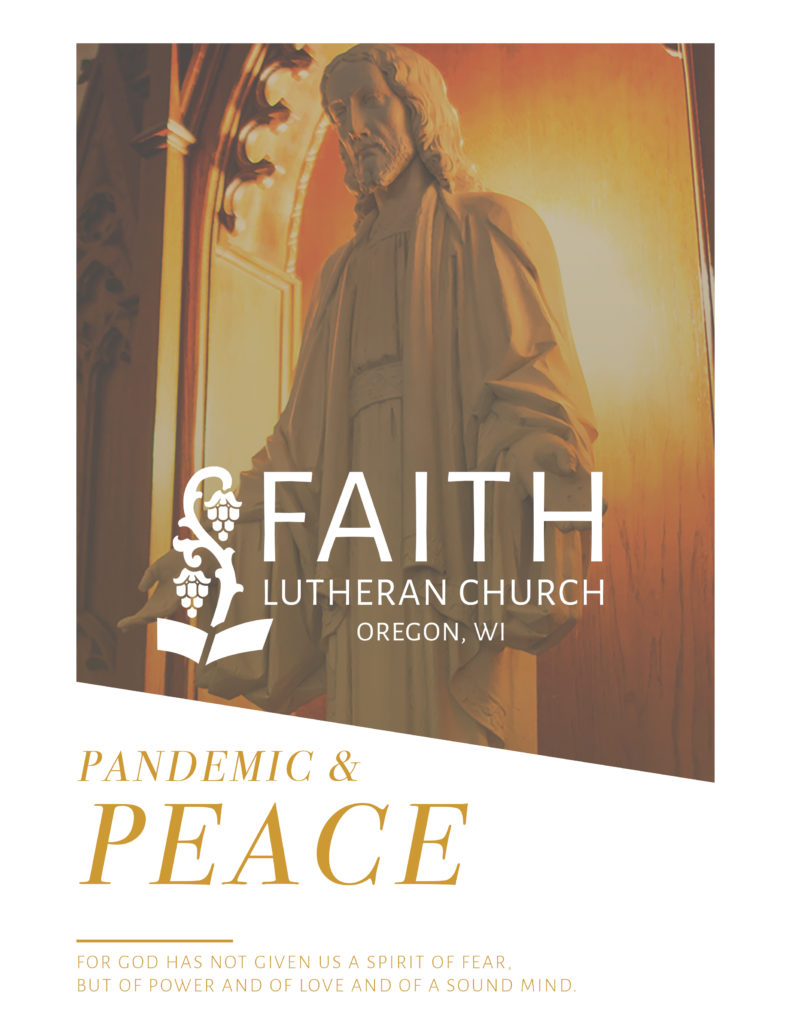It was the year 474 A.D in Vienne in modern day France. To the people of that village, it seemed like the world was falling apart, or even that it was the end of the world. The Roman Empire was in a state of utter collapse. Foreigners, barbarian tribes were raiding their village. There was a famine. They were experiencing pestilence or plague, a pandemic. And on top of it all, there was an earthquake causing many houses and even churches to collapse. And then on Easter day, the history books record that fire from heaven engulfed the king’s palace in flames. Whole forests were consumed, which forced many animals including wolves and bears to enter into the town and eat many of the children. The people recognized this as evidence of demonic activity, as the result that the devil still had power in the world. And more than that, they realized that they did not have the power to overcome even what the earth could do to them, let alone the devil.
The Bishop of the area that was affected by all this was named Mamertus. Mamertus did the only thing he could. He prayed. And he called on the people to pray. And he instituted a period of prayer, fasting, litanies, and processions on the three days before Ascension. They would pray that God would relieve their suffering and bless the crops during the coming year. Today these three days are called the Rogation Days. (1)
The Lutheran Church today still observes them. And we pray seeking God’s mercies and that He would be gentile in His chastisements, seen often in natural disasters and plagues. And we ask His blessing especially with regard to farming and gardening. And these Rogation days are set aside to remind us how dependent we are on God, and how we need to be protected from nature’s often cruel ways. And more importantly, these days are to remind us of the absolute necessity of prayer.
In former days, this would be done with a procession with the Pastor leading His congregation around the perimeter of the parish and into the farms of the people. And for three days they would carry banners and a cross and pray as they processed through the farms, like a military regiment going into battle against the forces of the devil and the forces of nature by prayer.
But I’ll bet you’ve never heard of the Rogation Days before. In our modern day, we think we’re too enlightened. Penitential processions are a thing of the past. Many today think that nature can be tamed, that the earth can be controlled, that evil can be harnessed.
And so we don’t pray. Instead, we make laws. Prayer seems too superstitious, too old fashioned. We can fix things ourselves. We can control evil by making laws. We can even control our crops with genetically engineered plants. We can control sickness with medicine. But then along comes a pandemic, and we realize very quickly that we can’t control everything.
This natural tendency of ours to try to control everything, is why our Epistle from James 1:22-27 is so fitting. James, the brother of Jesus and the author of our Epistle, tradition says that he prayed so much he had his knees calloused from prayer. He tells us what the baptismal life of a Christian looks like, with prayer and good works. First of all, a Christian understands that he can’t control everything, and that’s especially true of even his own impulses. A Christian understands that he cannot do what the law says, at least perfectly. The mirror of the law shows him his sin. Which should in turn, direct the sinner to their savior in prayer, and to their neighbor in good works. And that’s the second thing a Christian is, one who not only hears God’s Word, but does it.
But some ignore the first part, the mirror, and make law an end to itself. They take James’ words about “taking care of orphans and widows” literally, to mean that if you do these things, you’re a true Christian. That you can measure whether or not you’re a true Christian by what you do.
This a false way of believing called Pietism. Pietism is an over-emphasizing of personal piety, or outward actions. And what happens when you over-emphasize outward actions is that Christianity becomes shallow; it becomes moralism, all about fixing things with the law. But the doesn’t fix things. The law only reveals your heart. So because you can’t keep the law, you either try to downplay the mirror and make laws for everybody else, or you look honestly into it and fall into despair.
In old days you might have heard people saying things like “if you were a Christian, then you don’t play cards, you don’t dance, you don’t buy insurance because that means you don’t trust Jesus.” And certainly all of these things can be abused; all good things can become bad. Pietism trivializes the faith because it makes Christianity about superficialities. (2)
And pietism doesn’t really go away. So someone today might say “I’m so glad I’ve been liberated and enlightened, from those old ideas about not playing cards and not drinking, those old conservative ideas,” but it doesn’t solve the problem if you just replace it with “I know where all of my food is sourced,” “I drive a green car,” “I shop local,” etc.
Or perhaps, more relevant to today, “You don’t wear a mask? I wear a mask,” “You go out? I stay home,” Or on the flip side, “You’re staying home? This virus isn’t that dangerous. I’m not afraid of it. I don’t fall for everything the government says.”
Here in Dane County right now, on one side you have whole churches criticising those critical of the stay at home order, essentially saying “we’re better than you because we actually care about people’s health,” and on the other side, whole churches criticising the other side saying, “we’re better than you because we actually care about people’s rights and freedoms.” Pietism is measuring your own righteousness by the low hanging fruit of what you’ve done.
Pietism is the default religion for America. You can be a conservative pietist or a liberal pietist, but it’s still pietism. It’s a focusing on laws you believe you can keep, and a downplay of the Gospel, and of Christ’s work to overcome sin, to do what you could not. If you can do certain things well enough then you have less need for Christ.
All you have to do is ignore the perfect morality and justice that God requires, focus on the outward actions, and you can call yourself a pretty good Christian.
But all of this is, as Bishop Bo Giertz says in the Hammer of God, “only picking burs from your coat, something you can get rid of yourself.”
But we’re not more enlightened today. We just think the problem is with everyone else. And so so pietism would turn God’s good gifts into laws for everyone else, believing again that the earth can be controlled and evil can be harnessed by the law. And so every once and a while some politician, while they might have good intentions, will propose a law to have prayer in public schools. But this is not how prayer works.
Prayer is not a magic formula that if we get enough people saying it, God might listen. As Luther says in our Small Catechism. “The good and gracious will of God is certainly done without our prayer, but we pray…that it may be done also among us.” And likewise, “God certainly gives daily bread without our prayer, even to all the wicked; but we pray…that He would lead us to acknowledge this and to receive our daily bread with thanksgiving.”
We cannot tame nature to give us what we need all the time. We cannot control the earth to always and only have “good weather, peace, and health.” We cannot harness evil by making other people pray. We cannot fix our sin by the law.
Rather we pray because we cannot do these things. We pray because only God can.
But even Christians today have largely ceased to pray. Rogation days then, it seems, are for men of the past. Medieval men. Unevolved and unenlightened men who fear the forces of nature and of the devil. Prayer would suggest that we’re dependent on someone else. Prayer would be an acknowledgement of our own sin.
But we are dependent on someone else. And in fact, sometimes, we need God to put burs on our coat that we can’t remove ourselves. We need the ground to cause us to toil and sweat to remind us what we cannot do.
And even though we should pray for our agriculture pursuits and our health because the forces of nature and of the devil are out of our control, these are not out of God’s control. Things like natural disasters or viruses can still only happen by God’s active will or passive will. Nothing happens that is apart from God’s will.
“God’s will is done when He breaks and hinders every evil counsel and will which would not let us hallow His name nor let His kingdom come.” (Explanation of the 3rd Petition)
Sometimes that means breaking down our own will, even our own enlightened thinking, through things that are beyond our control, so that God can truly enlighten us with the Gospel and His promises…Including His promise to hear us when we pray.
And He will hear us, not simply because we pray, but because Jesus has given us access to the Father. Jesus has already defeated the forces of the devil, and Jesus has overcome the world.
In the old Rogation Day processions, on the first two days, Monday and Tuesday, they would march with a banner with a red dragon symbolizing the devil. And this banner would go in front of the cross, symbolizing the devil’s power in the world. But on the third day of the procession of prayer, the devil’s banner would be moved behind the cross, and the tail of the dragon would be cut off, symbolizing the utter defeat of the devil by Jesus’ death on the cross, and the cutting off of his power in the world. Through the resurrection of Jesus, the devil is nothing but a defeated animal with his tail between his legs.
We have true peace from Jesus. We have peace of conscience that our sins and failure to measure up to the law are atoned by Jesus. The mirror of the law was satisfied in Jesus. And we have peace that this world cannot do anything to our eternal life. Nature cannot go against God’s will, and so we pray for God’s will to be done.
Let me close with a quote from a Lutheran theologian around the time of the reformation, Johann Spagenberg, speaking of the comfort that Jesus’ victory gives:
“The game is already won. The battle is over. Victory is here and all has been vanquished. All that remains is not to give up, but hold tight. Even if you see the old dragon, the serpent of hell, viciously spread his jaws, flash his fangs, whet his claws, rage and storm, and tyrants strike and shake their fist, remember the words: I have overcome the world…For all authority has been given to Me in heaven and on earth” (3)
So, Christian, rogate! Pray! Your Father will hear you, the earth will submit to His will, and your joy will be complete, in Jesus’ name. Amen. Gloria Patri…
- Summary of the Rogation Day history taken from Sensus Fidelium
- Thoughts on Pietism from Let the Bird Fly podcast on the Hammer of God: Let the Bird Fly Podcast on the Hammer of God: https://www.letthebirdfly.com/2020/05/02/the-110-intro-to-theology-audio-008-hammer-of-god/?utm_source=rss&utm_medium=rss&utm_campaign=the-110-intro-to-theology-audio-008-hammer-of-god
- “The Christian Year of Grace,” by Johann Spagenberg, translated & edited by Matthew Carver.





